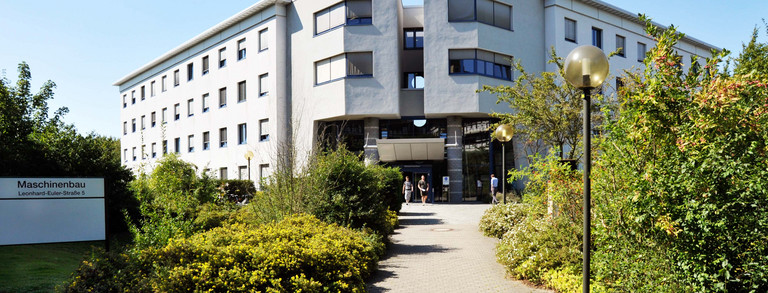Finding Topics
Choosing the topic of your academic paper is the first important step towards successfully completing the paper. The topic should correspond to your main interests during your studies, so that you can combine what you have already learned with your own interests and skills. The topic or the focus of the topic should be able to motivate you constantly so that you can work intensively according to the given deadlines (e.g. 4-7 months).
Requirements
An intensive examination of different topics or research approaches is the basic prerequisite of a scientific paper. We prefer content that corresponds to the topics of the institute or the research focus of our scientific staff, which ensures a high relevance for the institute. The early identification of topics allows you on the one hand an insight into possible research questions and on the other hand a first estimation of the effort required for the preparation of a scientific paper. The intensive preparation avoids a time-consuming adjustment of the task or even the abortion of the preparation of the scientific work.
An early involvement of all participants in the process of finding a topic is generally recommended. If, for example, you would like to write the thesis in cooperation with a third party, e.g. a company, content-related and/or legal agreements (e.g. confidentiality agreement) can delay processing.
If you have been able to identify an interesting topic for yourself, you must check to what extent the topic is scientifically relevant in order to be able to guarantee the scientific claim of the thesis. In doing so, it is important to keep in mind that other academics have already dealt with this topic and may have uncovered problems or further questions. In addition to the scientific relevance, the feasibility of the research project should also be examined in advance. The scope should be appropriate to the time frame specified for the bachelor's or master's thesis. Depending on the topic and the task, for example, obtaining specific information and sources, organizing material resources or the dependencies on interview partners can take a long time.
If you have taken the above-mentioned aspects into consideration, an exposé can be formulated as a first draft. The exposé should reflect the common thread of the future scientific work and briefly list the individual contents of the state of the art, concept development and validation. It is important for the preparation of a synopsis to elaborate the relevance of the scientific work. It should be highlighted what makes the scientific work stand out and why this is and could be relevant for science or industry.
For scientific project work, groups of 2-4 people are preferred. Individuals can only be supervised in exceptional cases. When a group is working on a scientific topic, it should be noted that each group member must submit an independent paper. Due to this requirement, the desired topic must be distinguished, for example, by different theories, systems or the like, so that each group member can focus on a particular theory, system or the like.
FAQ
The synopsis contains on max. 2 pages: Title, problem, goal and methodology of the scientific work.
Put simply: it must be clear what kind of scientific problem is to be solved, what the desirable target state should look like and what means are to be used to achieve the whole.
When students do their work in a company, companies sometimes demand a non-disclosure agreement (GHV). If it is not possible to convince the companies to only have the work marked with a non-disclosure notice, they must use the TU's template for the GHV. The company's own agreements are not accepted for reasons of minimising effort, as each individual agreement would have to be checked by the TU's legal department. In addition, the student must sign a declaration on behalf of the TU that another topic could have been obtained for the thesis "which would not have required the conclusion of a separate property right agreement or the disposal of his/her rights to the further results of his/her Bachelor's/Master's thesis". The GHV and the student's declaration must be signed by the IPS, the IPS secretariat sends the two documents to the TU administration. The latter signs off on the GHV and sends it back to the institute for forwarding to the company and for retention at the IPS.
The research workshop at TU Dortmund University offers:
- a well-equipped learning and working space (laptops, moderation materials, projector, flipcharts, ...)
- Support in finding topics and writing term papers and theses
- Support and advice in selecting suitable research methods (e.g. for data collection and evaluation)
- the opportunity to carry out and present your own study and research projects
- our own extensive collection of material and literature (teacher training, diagnosis and individual support, research methods, etc.)
- the loan of video cameras for own study projects
- a varied workshop programme, infos: http://www.zhb.tu-dortmund.de/hd/forschungswerkstatt/
- The University Library regularly offers courses on scientific work with Citavi.
- The university library has numerous books on scientific work.
- The video learning portal Video2Brain offers video tutorials on "writing scientific papers".
- Students of TU Dortmund University have free access via their campus licence.https://www.video2brain.com/de/videotraining/wissenschaftliche-arbeiten-schreiben
Corresponding information could be taken from the documents in the Moodleroom.
Corresponding templates are deposited in the Moodleraum.


